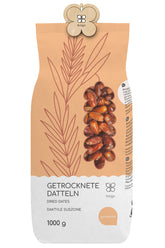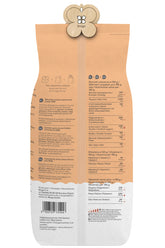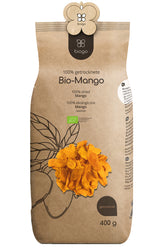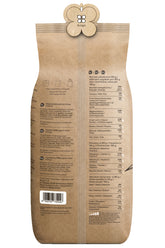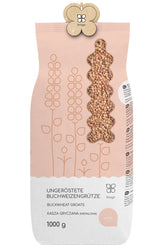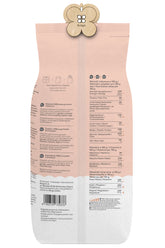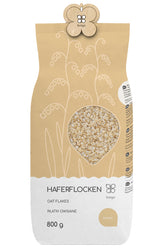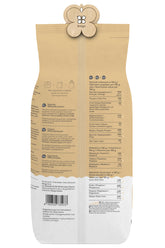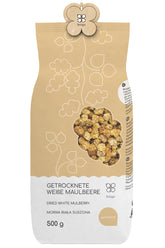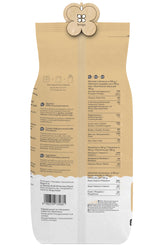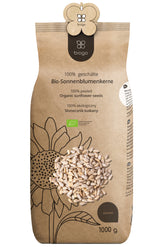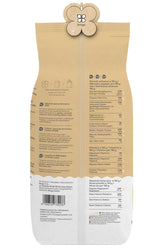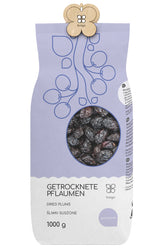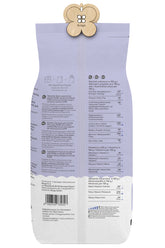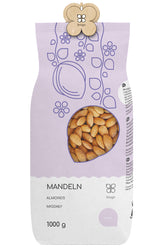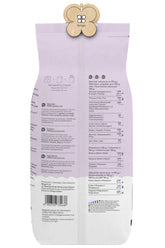The Power of Enzymes: How Natural Digestive and Flavor Aids Can Enhance Your Food
In our modern world, we are constantly searching for ways to make our lives healthier and more sustainable. An important aspect of this is the food we consume. Many of us increasingly pay attention to what's in our meals and try to choose as natural and unprocessed products as possible. In this context, enzymes play a crucial role, often referred to as the 'invisible helpers' in our foods.
What Are Enzymes and What Can They Do in Foods?
Enzymes are complex protein molecules that act as biological catalysts. They accelerate chemical reactions without being consumed themselves. In foods, enzymes perform diverse functions:
Digestive Enzymes
Enzymes like amylase, protease, and lipase are crucial for our digestion. They break down carbohydrates, proteins, and fats into smaller building blocks that can then be absorbed and utilized by the body. Without these enzymes, efficient digestion would not be possible.
Fermentation Enzymes
Enzymes play a central role in the production of fermented foods like yogurt, cheese, bread, or sauerkraut. They catalyze chemical transformation processes that lead to the characteristic aromas, textures, and nutrient profiles of these products.
Flavor Enzymes
Some enzymes can also influence the taste of foods. For example, proteases break down proteins into smaller peptides and amino acids, which often intensifies the flavor. Amylases, in turn, convert starch into sugar, which can give foods a sweeter note.
Antioxidant Enzymes
Some enzymes like superoxide dismutase or catalase have antioxidant properties. They can neutralize free radicals and thus delay food spoilage.
Natural Enzymes in Foods
Enzymes occur naturally in many foods. Particularly rich in enzymes are, for example:
- Fruits and vegetables: These primarily contain amylases, proteases, and lipases.
- Dairy products: Milk, yogurt, and cheese contain, among others, lactases, proteases, and lipases.
- Grains and legumes: Amylases, proteases, and lipases are present here in high concentrations.
- Honey: This natural sweetener contains a variety of enzymes such as invertase, glucose oxidase, and catalase.
Through gentle processing methods, many food manufacturers can preserve the natural enzymes in their products. This allows consumers to benefit from the diverse advantages that enzymes offer.
Enzymes in industrial food production
In addition to naturally occurring enzymes, the food industry also deliberately uses enzymes. Both enzymes from natural sources and genetically engineered variants are employed. Some examples of industrial enzyme applications:
Bread production
Amylases are used to loosen the dough and keep the crumb soft and moist. Proteases improve dough extensibility.
Cheese production
Enzymes like Chymosin break down milk proteins, which promotes cheese coagulation and influences ripening.
Beer production
Amylases convert starch into fermentable sugars. Proteases improve foam stability.
Wine production
Pectinesterases and Polygalacturonase facilitate pressing and clarification of the must.
Juice production
Enzymes like Pectinase and Cellulase improve juice yield and clarity.
Enzymes in dietary supplements
In addition to their use in food processing, enzymes are also used in dietary supplements. Here they can, for example, support digestion or aid the body in nutrient absorption. Popular enzymes in supplements are:
- Digestive enzymes like Amylase, Protease, and Lipase
- Antioxidant enzymes like Superoxide Dismutase
- Enzymes to support metabolism like Alpha-Galactosidase
Particularly people with digestive problems or specific dietary requirements can benefit from such dietary supplements.
Conclusion: Enzymes - the invisible helpers in food
Enzymes play a crucial role in our food - both in naturally occurring and industrially used forms. They significantly contribute to taste, texture, shelf life, and digestibility. Through the targeted use of enzymes, food manufacturers can optimize their products and offer consumers high-quality, natural foods. Enzymes also find diverse applications in dietary supplements. Overall, enzymes are indispensable 'invisible helpers' that make our food not only tastier but also more digestible.

